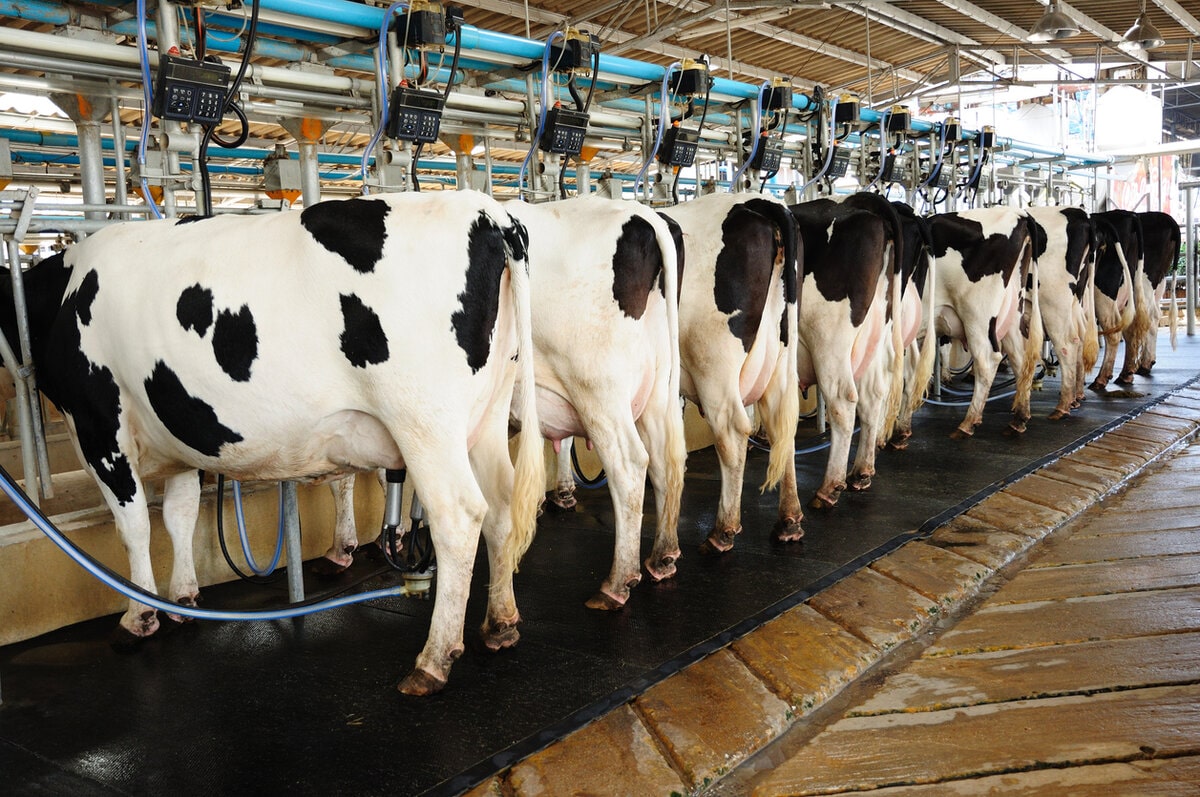Whether you run an operation with a large herd of dairy cows or just own a cow or two for personal use, you understand how important high milk production is. When your cows are lacking proper nutrition, it could mean losing out on profit or not having enough milk for yourself and your family.
If your dairy cattle aren’t achieving your production goals, you don’t have to accept it. With the right nutrition and care, you can help boost milk yield.
What Affects Milk Production in Cows?
Many factors play into cow milk production. Some are outside your control, such as breed, age, and climate. Other factors you can control, like cow comfort, daily milking frequency, dry periods (time between calvings), and feeding and nutrition.
How Does Feed Intake Affect a Cow’s Milk Production?
In simple terms, more feed intake means more milk. You need to maximize feed intake to support milk production, especially during the early lactation and pre-fresh stages. According to the University of Kentucky, for every extra pound of dry matter (feed with the water subtracted) consumed, an early lactation cow can potentially produce two extra pounds of milk.
When a dairy cow does not consume enough feed (and therefore not enough nutrients), milk production is negatively impacted. At best, the cow may not milk as well as usual. At worst, the cow will start to rely on its own fat stores to produce milk, leading to an underweight cow incapable of producing milk.
You don’t want to go to the other extreme, either. Overweight cows may also have lower yields, and you have to worry about more difficult calving and added veterinary costs. Ensure you are feeding your cattle enough without overfeeding and compromising their health.
How to Increase Milk Production in Your Cows
Monitoring your cows’ health, providing comfortable accommodations, reducing stress, and following best practices for milking and dry periods can all help with milk production. However, none of that will mean much if you don’t provide your cattle with the proper nutrition. If you want to boost milk production, focus on the feed.
Consistent Feeding
As mentioned earlier, feed intake is crucial for supporting milk production. You should prioritize keeping plenty of high-quality feed in front of your cattle. Some recommended practices to follow include:
- Giving cattle access to feed for 22–23 hours a day
- Not allowing feed bunks to become empty
- Pushing feed up every 2-3 hours
- Refreshing feed at least twice a day
- Cleaning out feed bunks daily
- Rotating cows on pasture and providing any necessary supplements
Start with Quality Forage
Quality feed starts with a base of quality forage. Ensure your forage is free from contaminants, which can lead to mold and yeast growth and poor fermentation.
A high-quality forage will encourage higher feed intake because low-quality forage does not pass through the stomach as well. Plus, forage with low contaminant levels can preserve the forage’s nutritional integrity.
Provide the Right Nutrients
Even with a great feeding routine and high-quality forage, your cows’ milk production will be lacking without the proper nutrients. Don’t overlook crude protein and the amino acids that compose it.
Crude Protein
Depending on the stage of lactation a cow is in, crude protein should make up 15–17% of the total dry matter.
Amino Acids
Amino acids make up protein. Lysine and methionine are two amino acids that play a crucial role in milk production but are often deficient. It’s not uncommon for cows to be overfed protein to make up for lysine and methionine deficiencies. But overfeeding protein can be expensive and impact your cows’ productivity.
Nutritionists have started to balance for amino acids to combat methionine and lysine deficiencies and prevent protein overfeeding. Feed that is balanced for amino acids can lead to increased milk yield and increased milk components. Working with a nutritionist can help ensure your feed ration has the right ratio of lysine and methionine to keep your cattle producing at their full potential.
Custom-Made Cattle Feed for Milk Production
Cattle nutrition depends heavily on age, weight, environment, and breed. There is no one-feed-fits-all solution for keeping your dairy cattle at peak production levels.
When providing your cows with the nutrition they need, turn to the experts at Star Blends. Our team can create custom feed tailored to your herd’s specific needs, helping you achieve optimal milk production and overall herd health. We’ll work directly with your nutritionist to ensure your cattle’s needs are being met. Contact us today to learn how we can help keep your cattle healthy and happy.



